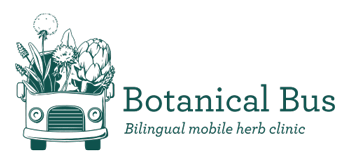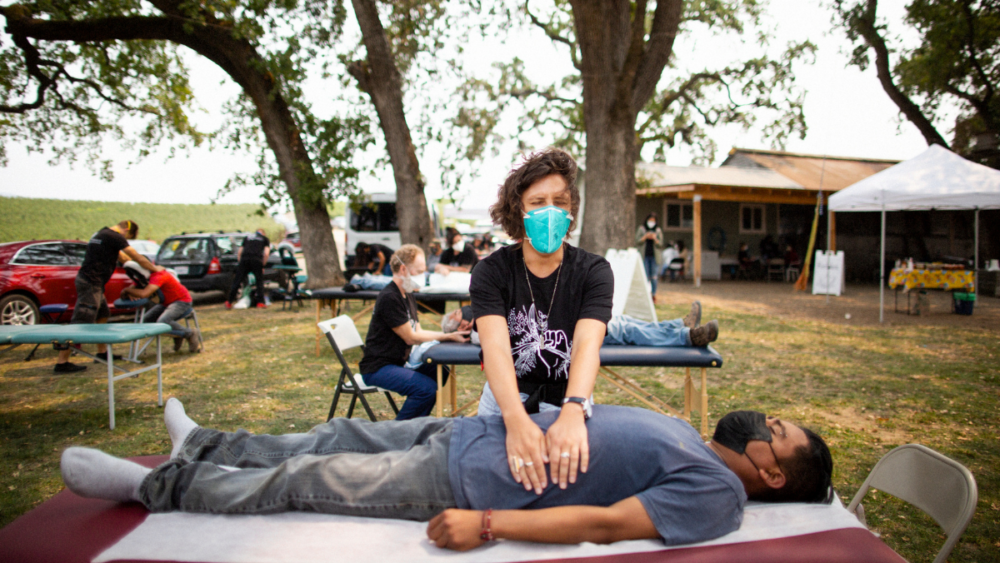At The Botanical Bus Farmworker Clinic: 88% of Latine and Indigenous clients report acute stress in the form of anxiety, depression and fatigue. 36% of this group identify their stress as debilitating. We believe that this mental health crisis needs to be met with culturally relevant care– care that empowers wellbeing though self-healing.
Culturally relevant care honors our abuelita’s knowledge of plant medicine for calming the nerves and easing a cough. It honors the way the earth smells where we were born. It allows us to feel seen, respected and capable of caring for ourselves.
Herbalism and massage therapy are at the heart of Latine and Indigenous healing traditions. At our clinics, we witness the power of these trusted and effective therapies to connect people to a vital sense of self and place.
According to a recent study published in the Journal of Agromedicine: of the 20% of Farmworkers who access massage therapy, 85% seek treatment for an acute condition and 100% feel the treatment is very helpful. And of the 65% of Farmworkers who use herbal medicine, 79% seek treatment for an acute condition and over 90% have found them very helpful. (Arcury, Furgurson, O’Hara, Miles, Chen and Laurienti)
“Me siento mucho mejor. Vine estresada y angustiada y me voy mucho mas liviana. I feel much better. I arrived stressed and anxious and I am leaving feeling much lighter”, shares a recent client of The Botanical Bus Farmworker Clinic.
At our clinics, clients are welcomed with music, tamales and herbal agua frescas. Care stations are staffed by bilingual, bicultural practitioners who provide massage, chiropractic, acupuncture, somatic therapy and clinical herbalism. Promotora Community Health Advocates lead wellness workshops on diabetes support, stress relief and immunity- all topics determined by community needs assessment.
Culturally relevant care empowers people to embody their intergenerational knowledge of health and to seek out complimentary and conventional mental health therapies. Our Latine and Indigenous community face disproportionate exposure to toxic stress from social determinants of health including economic security, immigration status, access to health insurance, safe home and work environments. By investing in Promotoras and culturally relevant health care, we take a stand for health equity and send a strong message “Our knowledge and power to care for ourselves and our community is part of who we are and where we come from.”
Thomas A. Arcury, Katherine F. Furgurson, Heather M. O’Hara, Kenya Miles, Haiying Chen & Paul J. Laurienti (2019) Conventional and Complementary Therapy Use among Mexican Farmworkers in North Carolina: Applying the I-CAM-Q, Journal of Agromedicine, 24:3,257-267, DOI: 10.1080/1059924X.2019.1592049

